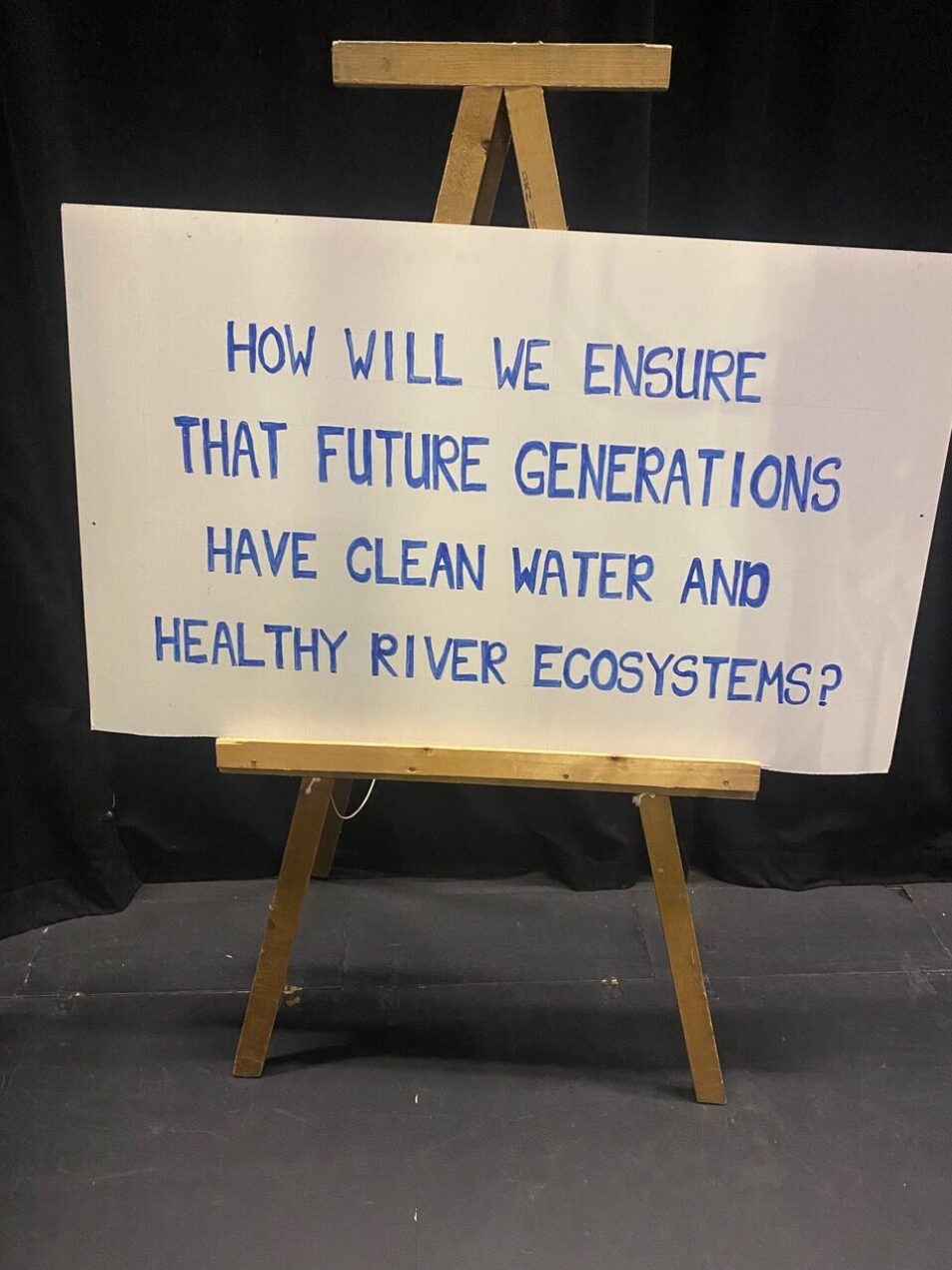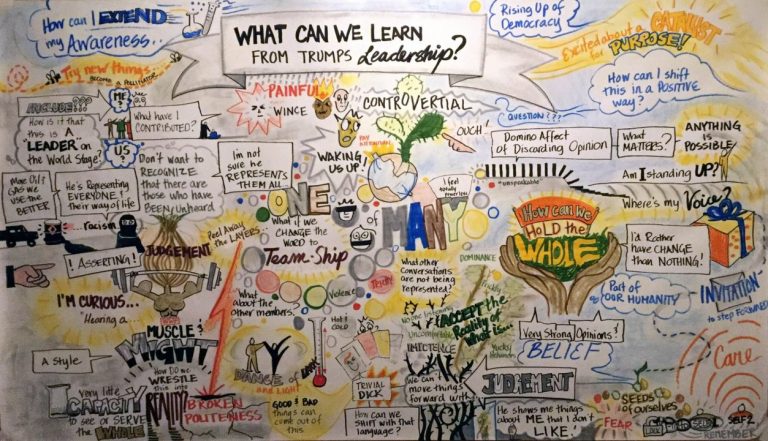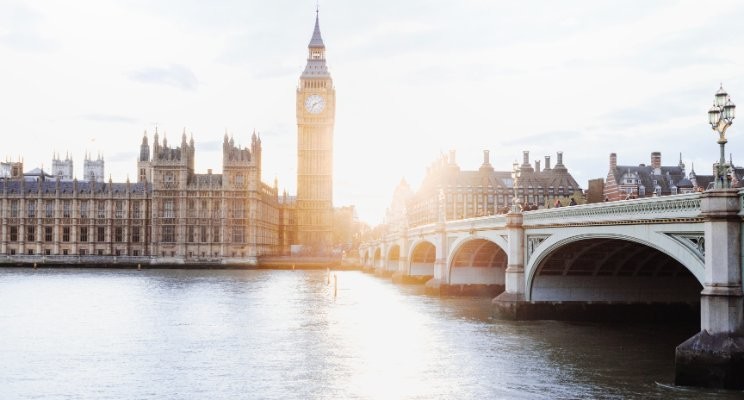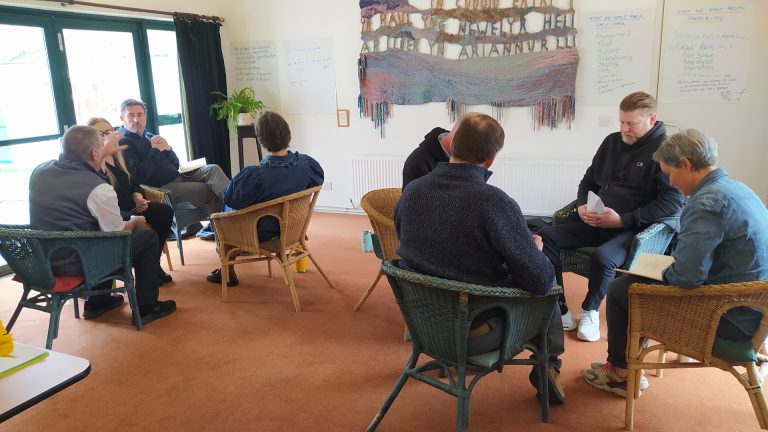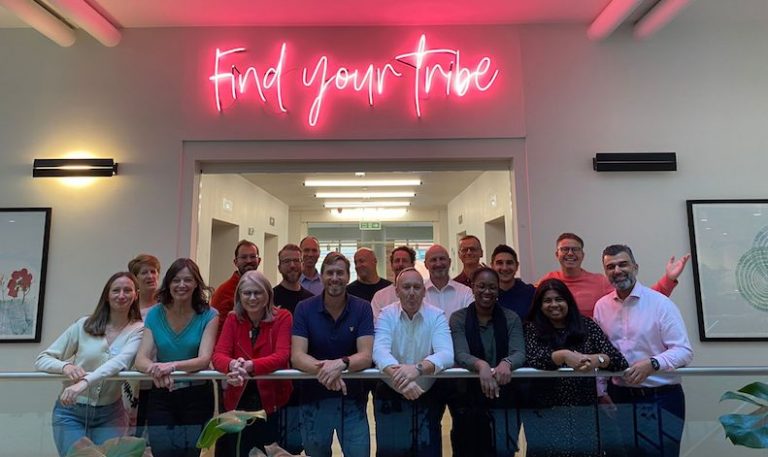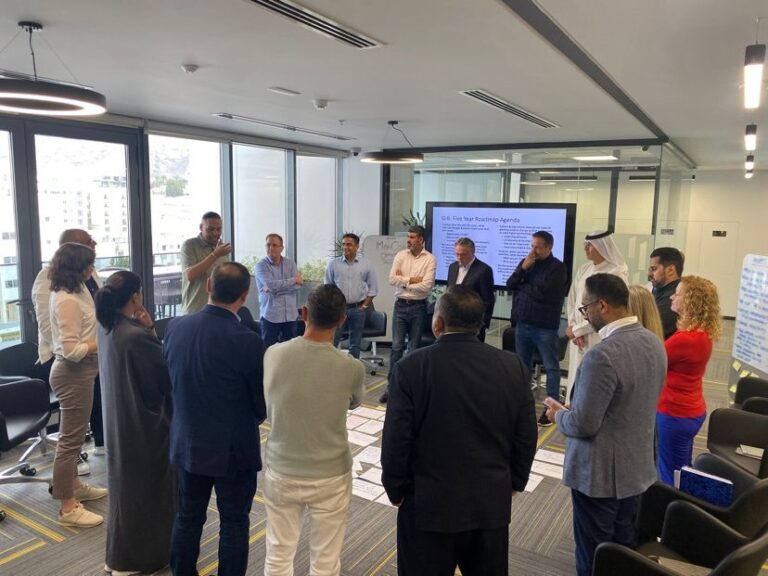Alone we can do so little, together we can do so much
Helen Keller
There was a palpable buzz in the foyer before the event had even begun. At the welcome desk, people wrote their names on sticky white labels and pressed them onto their jackets and jumpers like badges of honour. There was colour and creativity everywhere. A woman with bright eyes and flowing grey hair wore a crown made from blue and white plastic bottle tops. Another glided past in a multi-layered outfit that shimmered with all the colours of the sea. It felt as though the river itself had sent these characters to the Theatre Severn.
With its soaring glass walls and sweeping views of the River Severn curving through Shrewsbury, the venue could not have been more fitting for a ‘People’s Assembly’ on World Water Day (22nd March.) This wasn’t just a gathering. It felt like a convergence—of stories, of outrage, of hope.
When I stepped into the theatre, the chatter got louder. Excitement was in the air—but so was tension. A question, handwritten in bold marker, loomed from a large easel on stage:
How will we ensure that future generations have clean water and healthy river ecosystems?
A hundred people had chosen to show up and grapple with this question. Alongside local residents like me, there were climate scientists, ecologists, anglers, farmers, parish councillors and former employees of the Environment Agency and the local water company, Severen Trent Water. And while I’ve facilitated dialogue in boardrooms for over 20 years, this setting, with raw emotions running high, was new territory. I wasn’t a participant this time—I was one of the facilitators. My heart was pounding.
Could the same principles that unlock breakthroughs in corporate spaces—deep listening, shared understanding, generative dialogue—work here? Could we navigate strong feelings without spiralling into blame or bitterness? Could the collective wisdom of a diverse community show us a way forward?
We were about to find out.
A Utility in Deep Water
Recent headlines have made the issues feel very close to home. The BBC documentary ‘Thames Water: Inside the Crisis’ pulled back the curtain on the UK’s largest water utility—and the picture wasn’t pretty.
Thames Water is teetering under almost £20 billion of debt. It serves 16 million people across London and the Thames Valley, and it’s been forced to seek emergency funding just to keep going. A court-approved rescue package of up to £3 billion might keep it afloat—for now.
But money isn’t the only issue. Environmental performance has been dire. In 2024, Thames Water discharged raw sewage into rivers for nearly 300,000 hours—a 50% increase from the year before. No wonder trust is evaporating.
And this isn’t just about one company. It raises deep, systemic questions:
- How do we manage vital infrastructure for the public good?
- What happens when profit trumps long-term stewardship?
- What kind of leadership do we need in this moment of crisis?
Would today’s Assembly offer fresh insights?
Full Throttle
Back in the theatre, the screen lit up. Feargal Sharkey, musician turned river champion, appeared and launched into his talk with righteous energy.
“You’ve been had!” he declared, eyes blazing. It felt like he was speaking directly to every one of us.
He pulled no punches, explaining how 35 years of privatisation and opaque ownership structures have led to catastrophic consequences. Sewage spills. Dead fish. Polluted swimming spots. People cheered and clapped mid-sentence.
The activist group Up Sewage Creek, who’d co-organised the Assembly, had learned from the year before. They kicked things off with high energy—and it landed. Alongside Sharkey, we heard from James Lock from the River Don project in Sheffield who shared radical alternatives for a more community-based response to the way we manage our natural resources especially rivers, bringing a calm, solutions-focused approach to complement the heat. We watched a video, ‘Severn Wild’, created by young people, full of poetry and art. The message, “The future starts today” reverberated around the auditorium.
Now it was time to talk—not just listen.
Holding Space for Dialogue
As our group of eight gathered in the light-filled foyer, I felt the energy shift. There was nervousness in the air and inside me. It would be so easy to slip into the blame game, to vent and shut down the space for creative thinking.
Instead, I remembered some words of Margaret Wheatley, the American writer and teacher, which she’d shared in a recent webinar. I’d read her book ‘Turning to One Another’ years ago and its call to connect stayed with me. During times of conflict and uncertainty, when we so often turn to social media to blast our opinion or reaffirm our view, Wheatley advises us to avoid all other forms of communication except direct conversation. We then stay in relationship and stop distorting messages.
“Conversation is the technology. Curiosity, vulnerability, mutual respect give it power.”
So that’s where we began. Not with opinions, but with presence.
We started with a check-in: one word to name how we were feeling. “Thoughtful.” “Annoyed.” “Curious.” “Frustrated.” Naming what’s real helps people settle. It builds the container for deeper dialogue.
I handed out Post-It notes and invited each person to jot down their ideas about the big question on the easel. Then, one by one, each person spoke for two minutes as I turned over a Barbie-pink egg timer to keep things fair. Equal airtime cultivates trust—people know they’ll be heard.
We clustered themes on coloured cards. We built connections between ideas. Dialogue began to flow—not as a debate to win, but as a co-creation.
By the end of our 45 minutes, we had five clear recommendations. One group member—who at first looked hesitant—volunteered to be our spokesperson. With a little help from the group and a few bullet points jotted down, she was ready.
When Dialogue Works
As we filed back into the main theatre, joining eight other groups, I was struck by how much ground we’d covered—and how deep we’d gone. No one had shouted. No one had dominated. People had shared stories, ideas, hopes, frustrations.
Above all, they’d listened.
“As campaigners, we must provide more emotive and consistent messages to the public and encourage greater political will,” said our spokesperson in a quiet yet passionate voice.
“We need to be talking with people and cross-pollinating ideas about how to transform the management of water so it’s available for future generations and for humans and non-humans.”
The top recommendations from each group were read aloud and typed live on the big screen (the full set of recommendations will be published shortly on the Up Sewage Creek website.) You could see the collective intelligence come to life—ideas building on one another, weaving a tapestry of practical suggestions and visionary thinking. Top of the list and recommended by all eight groups was to improve communication between people, the public, and organisations campaigning for water management system transformation.
As we heard from each of the groups, the atmosphere shifted. People listened intently. Some got to their feet uninvited to make appeals and they too were heard. At the very end we heard from Kate Halliday, our local councillor, and Julia Buckley, the Labour MP for Shrewsbury, who spoke about taking the recommendations forward to round off our open dialogue.
We hadn’t solved the water crisis. But we had created something essential: connection. Agency. A sense that we are not powerless.
What Assemblies Make Possible
People’s Assemblies are powerful spaces because they flip the script.
They’re not about winning arguments—they’re about understanding different perspectives.
They’re not about positional power—they’re about participatory leadership.
They don’t rely on professional politicians—they rely on ordinary people, listening well.
In a world where so many feel unheard, these spaces offer something radical: voice.
And unlike corporate settings, there’s no pecking order, no boss steering the conversation. There’s just people. People with different experiences, different worldviews, and a shared concern.
When you create a space that’s psychologically safe, well-informed, and well-facilitated, extraordinary things can happen. Solutions emerge. Bridges are built. Trust is restored.
A New Kind of Leadership
At a time when political polarisation is rampant and trust in institutions is crumbling, People’s Assemblies show us another way forward. They don’t replace representative democracy—but they enhance it.
They tap into our collective wisdom. They model what leadership could look like in this new era:
More relational. More participatory. More grounded in reality—and possibility.
Whether we’re talking about the future of water, the climate crisis, or the cost of living, we need spaces like this. We need dialogue that moves us from despair to agency, from blame to belonging.
We need, quite simply, to talk to each other again.
Because the answers aren’t out there, waiting to be discovered. They’re in here—with us—waiting to be heard.
